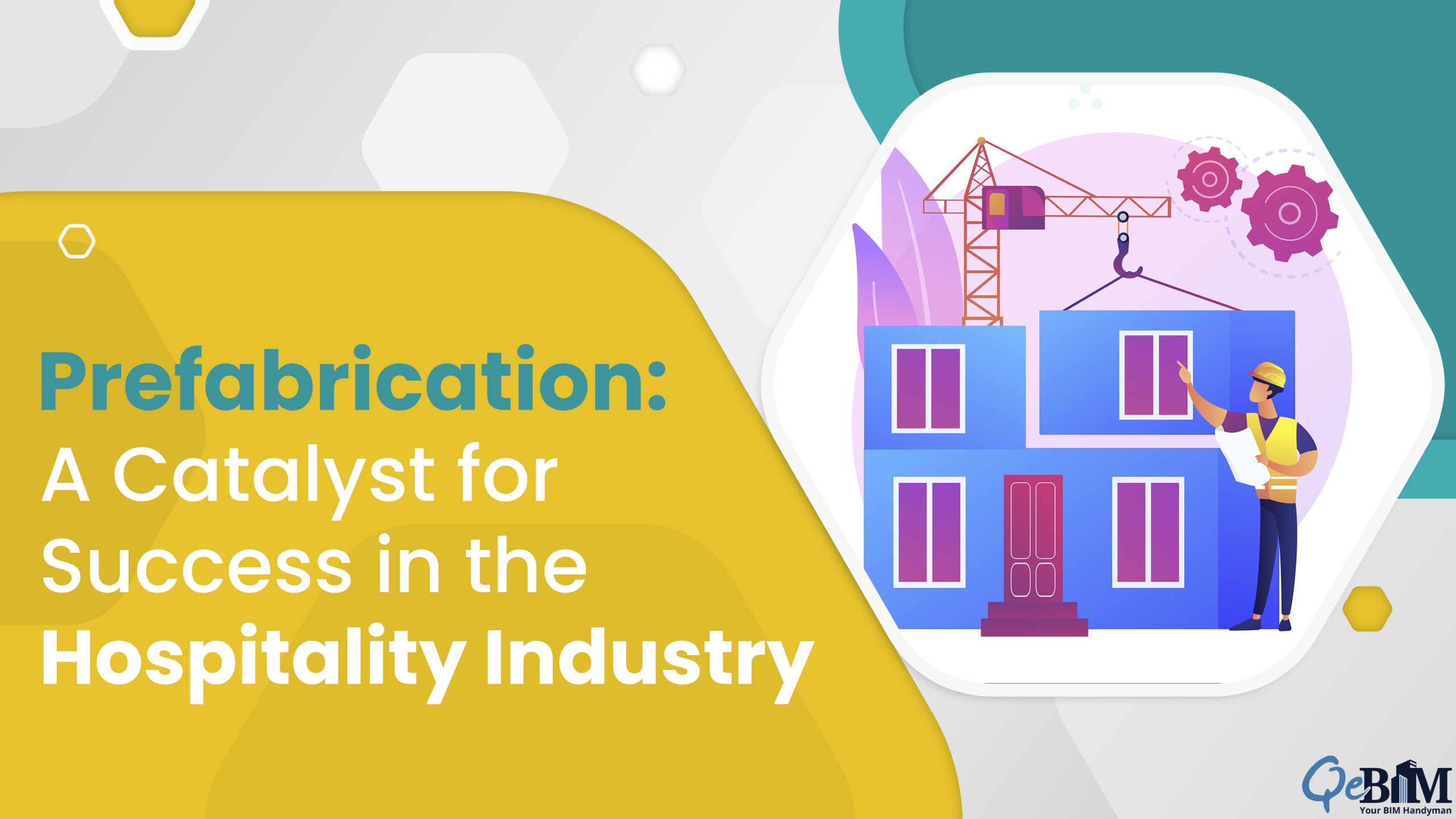Prefabrication: A Catalyst for Success in the Hospitality Industry

The hospitality industry has witnessed a significant transformation driven by technological advancements and changing consumer preferences in recent years. Prefabrication is one of the notable innovations that has garnered significant attention. This construction method involves assembling components of a structure off-site and then transporting them to the desired location for installation, along with the integration of BIM Services and CAD services. Prefabrication offers a range of benefits for the hospitality industry, revolutionizing how hotels, resorts, and other accommodation establishments are designed, built, and operated.
In the below blog, we will unveil the advantages of prefabrication and its positive impact on the hospitality industry.
1) Speed and Efficiency
Timing plays a crucial role in the hospitality industry. Hotels and resorts often face tight deadlines to complete construction projects and open their doors to guests. Prefabrication significantly accelerates the construction process by eliminating many time-consuming on-site activities. Since prefabricated components are manufactured off-site in a controlled environment, construction can progress simultaneously at both the manufacturing facility and the building site. This parallel workflow reduces project duration, enabling faster completion and quicker return on investment.
Furthermore, prefabrication minimizes delays caused by inclement weather conditions, as most of the construction takes place indoors. The assembly line-like production process ensures enhanced efficiency, minimized waste, and elevated quality control. Consequently, hospitality businesses can benefit from a shorter construction period, allowing them to start generating revenue sooner.
2) Enhanced Quality and Consistency
Prefabricated components are manufactured using advanced technology and automation, guaranteeing higher quality standards than traditional construction methods. Skilled workers can meticulously craft each module, ensuring precision, structural integrity, and attention to detail. Additionally, using accurate CAD Drafting Services and a controlled factory environment reduces the risk of errors and deviations from design specifications.
The repetitive characteristics of prefabrication foster exceptional consistency across multiple modules. This uniformity is particularly valuable for hotel chains and resorts aiming to maintain brand identity and guest experience across different locations. Prefabricated rooms, for example, can be standardized, ensuring a consistent layout, amenities, and finishes. This level of consistency creates a sense of familiarity and helps establish the hotel’s reputation for quality, thereby increasing customer satisfaction and loyalty.
3) Cost Savings
Cost-effectiveness is a crucial consideration for any hospitality project. Prefabrication offers several cost-saving advantages throughout the construction process. Firstly, the reduced construction time translates into lower labor costs. With shorter project schedules, there is a decreased need for on-site labor, resulting in reduced wages, supervision, and site management expenses.
Moreover, the controlled factory environment allows for better utilization of materials and resources. Waste can be minimized through efficient planning, recycling, and reusing surplus materials. The prefabrication process also enables bulk purchasing of materials, lowering costs through economies of scale.
Furthermore, prefabrication minimizes the financial risks associated with unexpected delays and cost overruns. Since construction takes place off-site, it allows for the early identification and resolution of potential issues, minimizing the risk of expensive rework or project delays. These cost savings contribute to improved project profitability and a better return on investment for hospitality businesses.
4) Sustainability and Environmental Benefits
The hospitality industry is increasingly prioritizing sustainability and environmental stewardship. Prefabrication aligns well with these goals by offering several green advantages. Off-site construction significantly reduces the amount of waste generated on-site, as material usage can be optimized in a controlled factory setting. All waste generated while manufacturing can be recycled or repurposed, contributing to a more circular economy.
Additionally, the reduced construction time associated with prefabrication leads to fewer disturbances to the local environment. Noise, dust, and traffic congestion are minimized, mitigating the adverse effect on the neighboring communities and ecosystems. Furthermore, the controlled manufacturing environment allows for better energy efficiency, as resources such as electricity and water can be managed more effectively.
Conclusion
Prefabrication has emerged as a game-changer in the hospitality industry, bringing numerous benefits to hotel and resort construction. The speed and efficiency of off-site manufacturing and enhanced quality and consistency create opportunities for faster project completion and improved guest experiences. Moreover, the cost savings and sustainability advantages make prefabrication attractive for hoteliers looking to optimize their investments and align with environmental goals. As the hospitality industry continues to evolve, prefabrication offers a promising solution to meet the increasing demand for efficient, high-quality, and sustainable accommodation spaces.